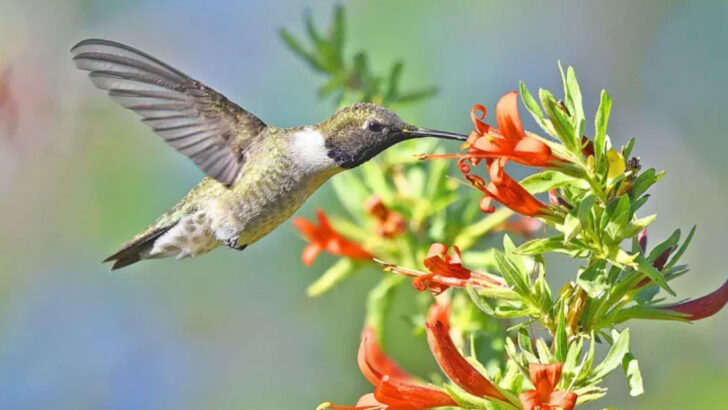You’ve planted the flowers, filled the feeders, and waited patiently—so where are the hummingbirds? These tiny birds are picky guests, and even one wrong detail can send them flying off for good. It might be something as small as the color of your feeder or a scent in the air you didn’t even notice. Hummingbirds need to feel safe and welcome before they’ll stick around. That means knowing what turns them off just as much as what draws them in. A few easy fixes could be the difference between an empty garden and a daily show of wings and color.
Predatory Birds
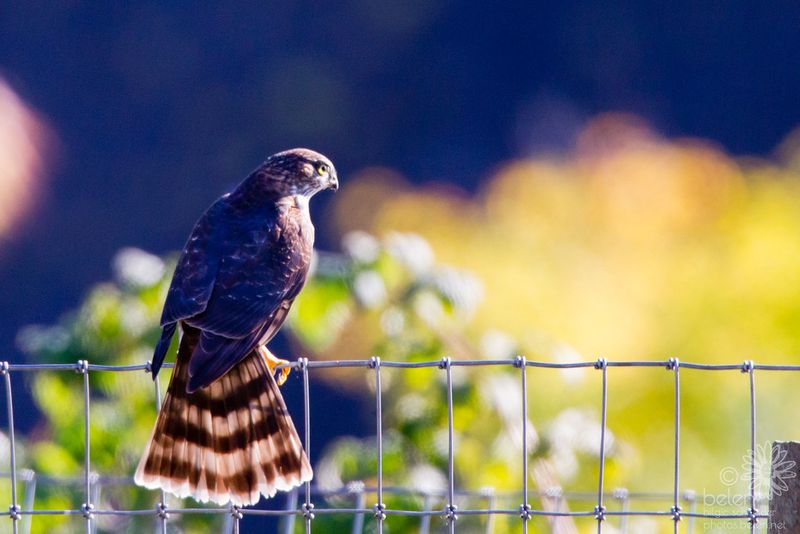
Imagine being a hummingbird, and suddenly, a shadow looms overhead. Predatory birds like hawks or owls can be terrifying for these delicate creatures. Their sharp talons and keen eyesight make them formidable threats.
In an environment where these predators are frequently sighted, hummingbirds may feel threatened and choose to avoid the area altogether. Thus, keeping bird feeders in open spaces where predators are less likely to lurk can help.
Did you know? Some hummingbirds can recognize individual predators, altering their flight path to stay out of sight.
Reflective Surfaces
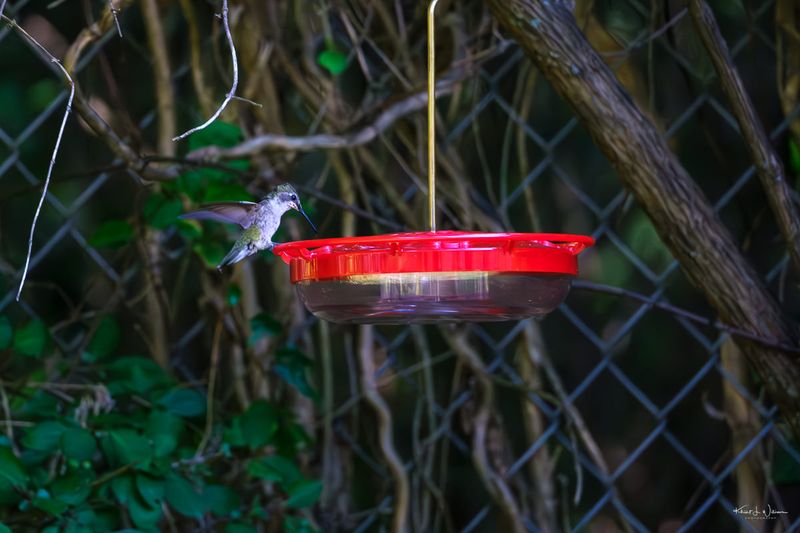
Hummingbirds are often misled by reflective surfaces. Windows, mirrors, and even shiny garden ornaments can trick these tiny birds into thinking there is more space ahead.
Such illusions can result in crashes, leading to injuries. These accidents are not only physically harmful but also instill fear, making hummingbirds wary of areas with reflective surfaces.
To prevent this, consider using window decals or positioning feeders away from shiny objects. This will help to minimize the risk of collision and maintain a safe haven for your feathered visitors.
Invasive Plants
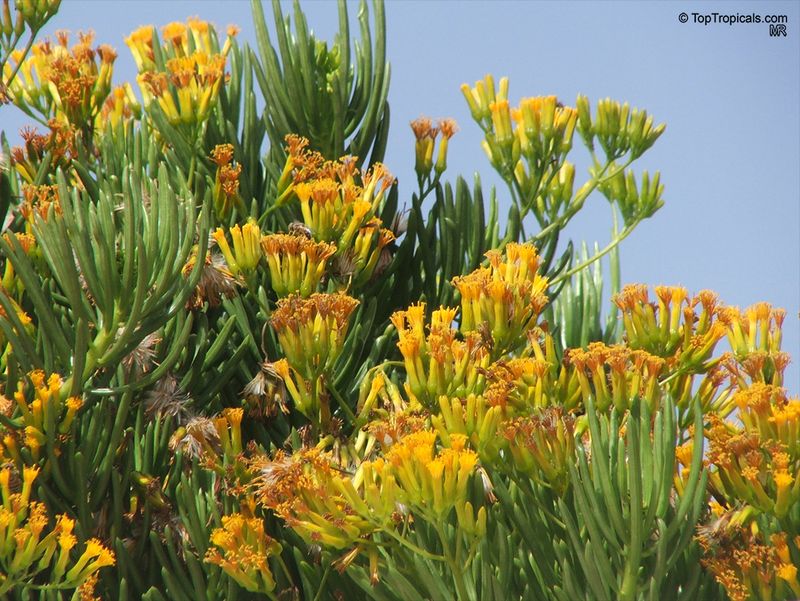
Native plants are crucial for hummingbirds, providing the nectar they crave. When invasive plants take over, they reduce the availability of these essential food sources.
Hummingbirds rely heavily on specific native flowers, and their absence can drive these birds away. Invasive species can also alter the ecosystem, making it less hospitable.
Introduce diverse native plants into your garden to ensure a thriving habitat. This not only attracts hummingbirds but also supports other local wildlife.
Did you know? Hummingbirds can remember every flower they’ve visited in their territory.
Loud Noises
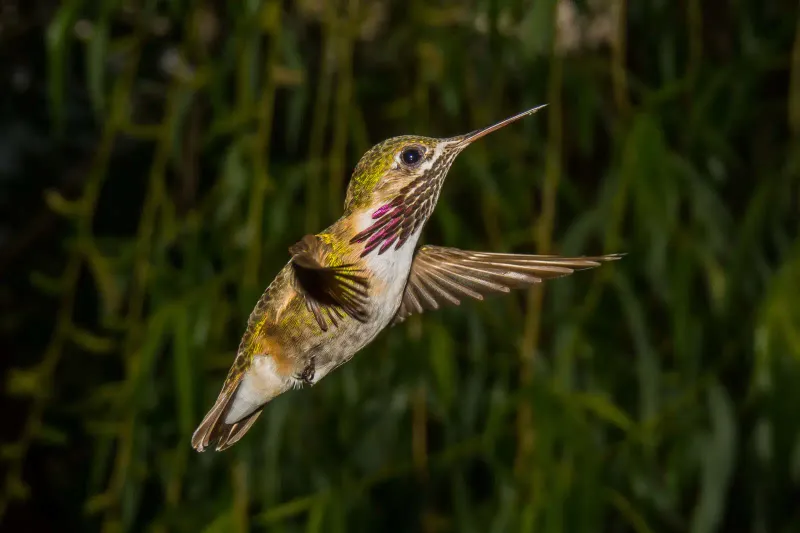
Imagine trying to relax amidst a constant cacophony. Loud noises, from construction sites to frequent lawn mowing, can be distressing for hummingbirds.
These sensitive birds thrive in serene environments. A sudden burst of noise can cause them to flee, seeking quieter areas. Even consistent loud music can be a significant deterrent.
If loud activities are unavoidable, try to schedule them for times when hummingbirds are less active. This will help in maintaining a peaceable garden atmosphere, encouraging these birds to return.
Aggressive Bees
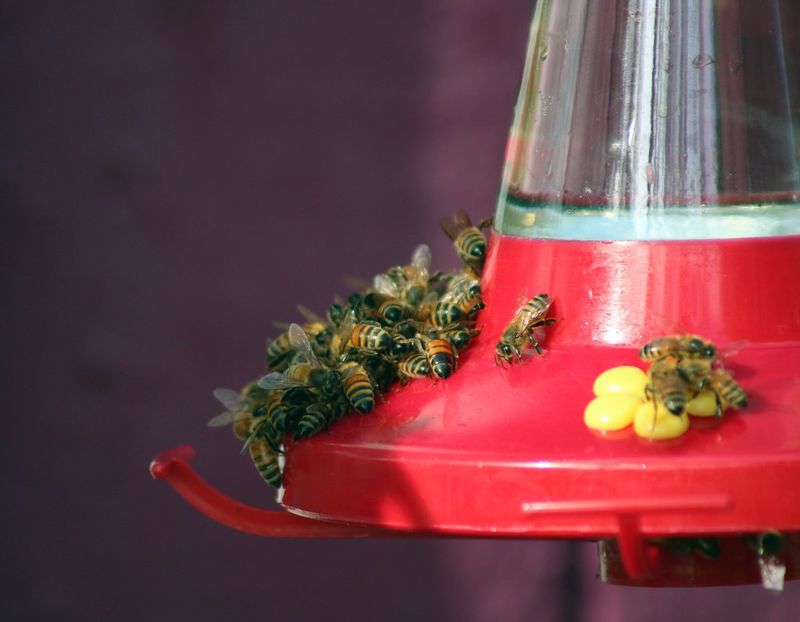
While bees are essential pollinators, their aggressive pursuit of nectar can scare hummingbirds away. A swarm at a feeder can be overwhelming for these tiny birds.
Aggressive bees can dominate feeders, making it difficult for hummingbirds to access nectar. This competition for resources may force hummingbirds to seek alternate feeding spots.
Ensuring that feeders are bee-proof or placing feeders in different locations can reduce this competition, providing a more welcoming environment for hummingbirds.
Fun fact: Hummingbirds have specialized tongues to extract nectar from flowers efficiently.
Lack of Water Sources
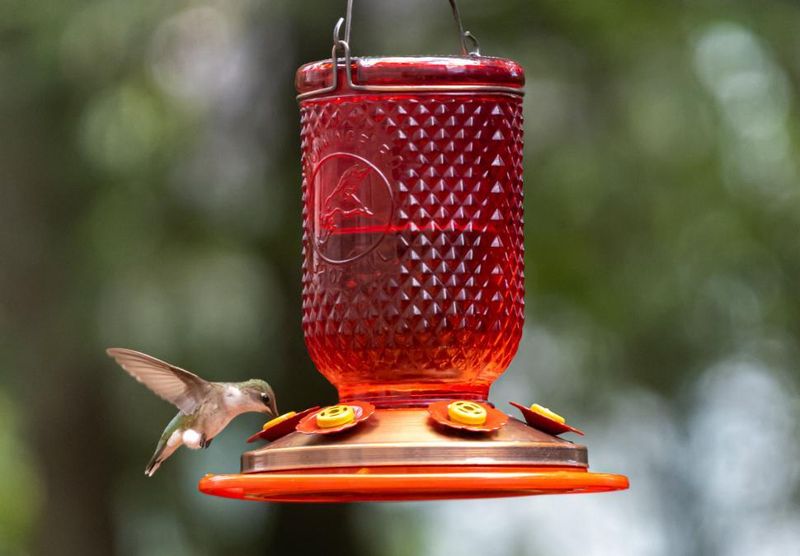
Hummingbirds need water for drinking and bathing. A garden without a suitable water source might not be appealing.
Birds are often drawn to gentle mists and shallow water features. A lack of these can lead hummingbirds to search elsewhere for hydration and cleanliness.
Incorporating small fountains or misters can enhance your garden’s appeal, making it more attractive to these vibrant visitors.
Did you know? Hummingbirds are known to bathe several times a day, especially during hot weather, to keep their feathers in pristine condition.
Poorly Maintained Feeders
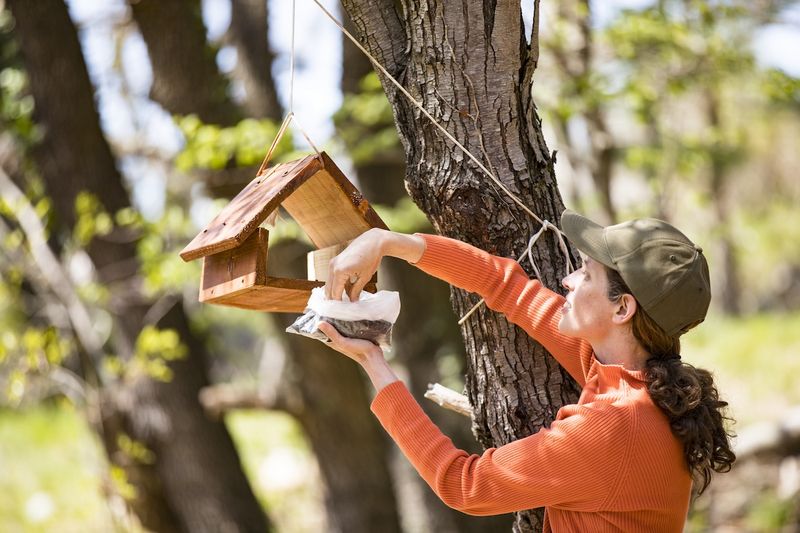
Hummingbird feeders need regular cleaning. Dirty or moldy feeders can deter these birds due to health risks.
Spoiled nectar can harbor harmful bacteria, posing a threat to hummingbirds. They may avoid feeding from such sources altogether, seeking cleaner alternatives.
Regularly maintaining feeders by washing and refilling them with fresh nectar is vital. This ensures a safe and inviting environment.
Fun fact: Hummingbirds can consume up to twice their body weight in nectar daily, requiring clean sources to sustain their energy needs.
Artificial Lights
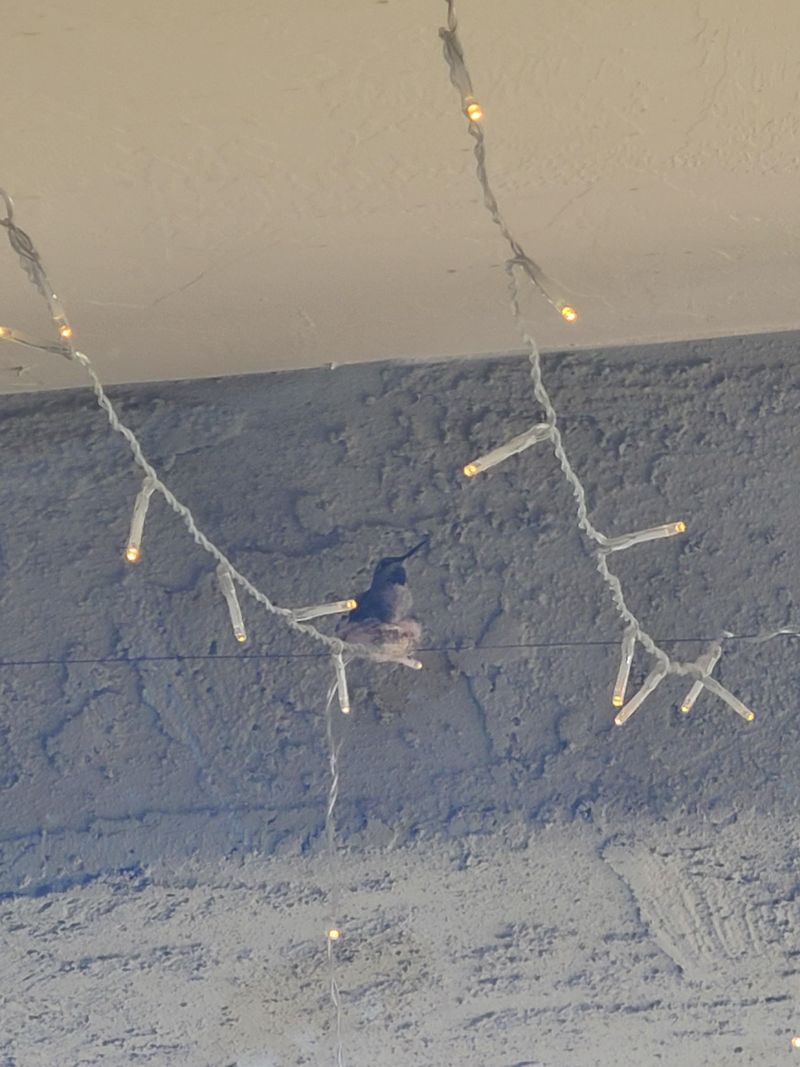
Artificial lighting at night can confuse hummingbirds. They navigate using natural light cues, and excessive artificial lighting can disrupt their patterns.
Bright lights can lead them astray, affecting their feeding and resting habits. A garden overly lit at night is less likely to host these birds.
Consider using softer lighting options or minimizing light during the night to maintain a natural setting that encourages hummingbird visits.
Did you know? Despite their small size, hummingbirds have excellent memory, recalling safe and resourceful locations.
Unfriendly Garden Layout
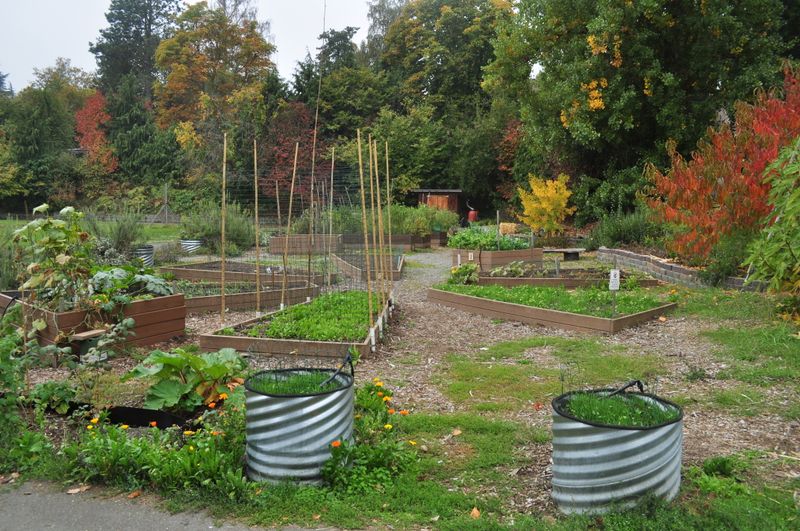
A garden’s layout can significantly impact its attractiveness to hummingbirds. Sparse vegetation and lack of hiding spots can deter these cautious birds.
Hummingbirds appreciate a variety of plants and structures to perch, hide, and feel secure. An unwelcoming layout may result in hummingbirds bypassing your yard.
To create a more inviting space, integrate diverse plant life and ensure varied heights and densities. This diversity offers shelter and feeding opportunities, luring hummingbirds to grace your garden with their presence.
Chemical Pesticides
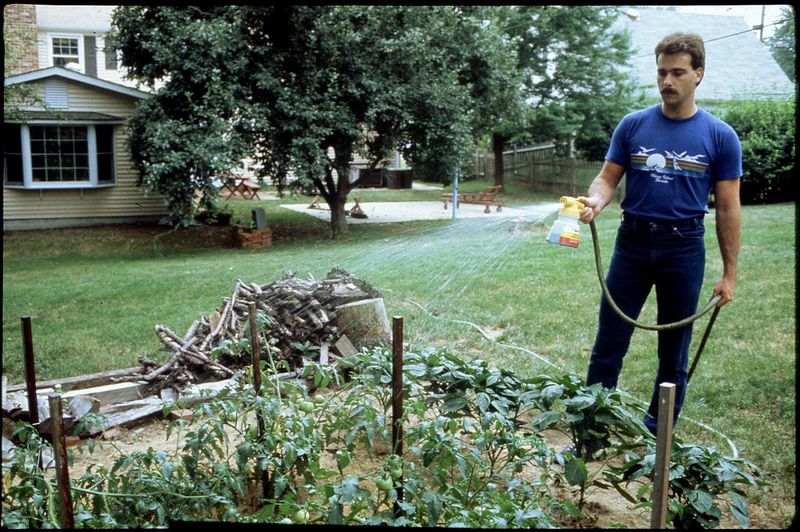
The use of chemical pesticides can deter hummingbirds by affecting the quality of their food sources. Nectar contaminated with harmful chemicals is unappealing and unsafe.
Exposure to these substances can harm hummingbirds, making them avoid gardens where pesticides are heavily used. Opting for natural pest control methods can mitigate this issue.
Encourage a pesticide-free environment to protect these delicate birds and ensure your garden remains a vibrant sanctuary for their visits.
Fun fact: Hummingbirds play a role in controlling insect populations, proving vital to garden ecosystems.
Overly Pruned Trees and Shrubs

Over-pruning can strip a garden of essential habitats for hummingbirds. Birds rely on the density of foliage for nesting and protection.
Excessive pruning reduces shelter options, making a garden less attractive. Hummingbirds often seek dense, natural growth for safety and nourishment.
Allowing some areas of your garden to grow naturally can provide the sanctuary these birds seek. This balance encourages their presence and enhances the garden’s biodiversity.
Intrusive Human Activity
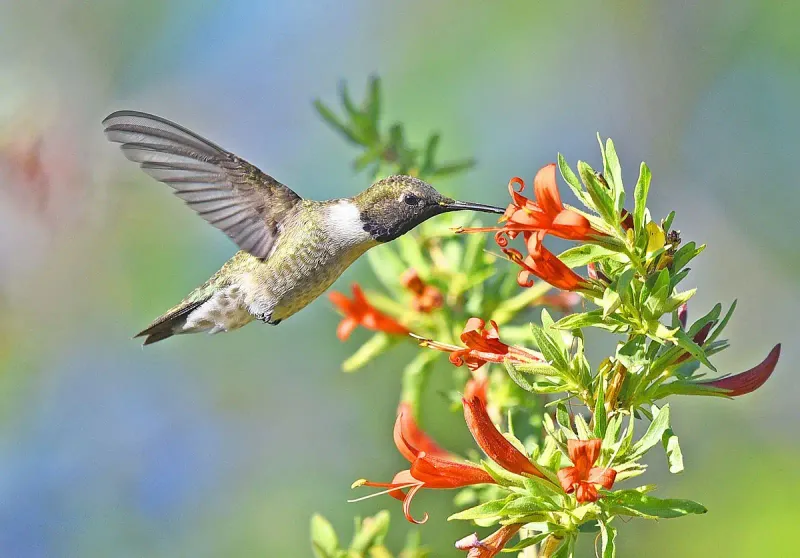
Frequent human activity can disturb the tranquility hummingbirds need. A bustling environment with constant movement might cause them to flee.
These birds are sensitive to changes in their surroundings. While occasional activity is fine, constant intrusion can drive hummingbirds away.
Creating designated quiet zones and minimizing disturbances can help in maintaining a harmonious space for hummingbirds.
Did you know? Hummingbirds can become accustomed to regular patterns, but unpredictable noises and movements can still startle them.

